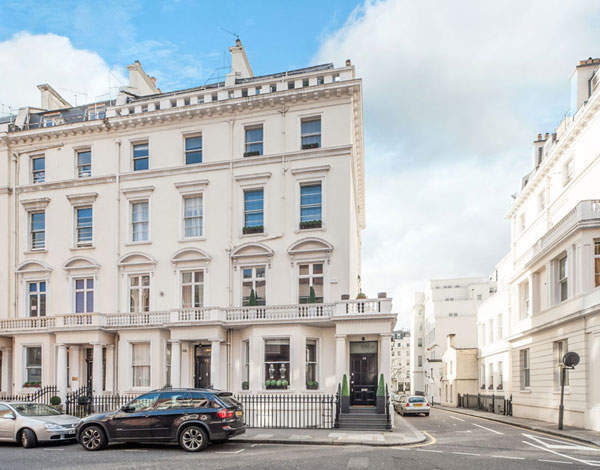
If bankers and lawyers are having to slum it in bedsits in Ealing as well, it will evoke a certain amount of pleasure among those who have become used to strap-hanging, says Ross Clark.
CAPITAL GAINS
Something rather remarkable has begun to happen over the past few months. I have started to hear complaints from young bankers and lawyers — and that means those in their thirties as well as twenties — that they cannot afford to buy property in central London. Some might not be too upset at this news.
After all, if you are a journalist, still less a nurse or a teacher, it has been pretty much impossible to afford a property in central London for the best part of two decades. If bankers and lawyers are having to slum it in bedsits in Ealing as well, it will evoke a certain amount of pleasure among those who have become used to strap-hanging from distant railway stations to get to work in the morning.
However, it does beg the question: if the highest-paid group of employees can no longer afford to buy property in central London, then who is buying it? What is it for? We have heard a lot about international buyers scooping up apartments by the dozen at property roadshows in Hong Kong and Singapore. Andrew Marr recently related the story of a Far Eastern buyer who had just bought a large apartment in central London for his son to inhabit while at university.
Read more on London property by Ross Clark from Spear’s
The son, it turned out, was only six months old. On top of the Asian buyers, there are some British investors, too: developers have started advertising new developments to Londoners themselves again — something they were not bothering to do during the recession.
But there is another factor in the seemingly endless rise of London house prices: it isn’t just a case of ever more buyers with ever more money descending on London. Fewer people are selling. There is less London property on the market than ever, as no one any longer wants to surrender their stake. Once, if you wanted to move from
London to the country, you sold your flat and put the capital into another property in the country. Now, if they possibly can, people cling on to the London property. They are too frightened to sell for fear of missing out on even bigger price rises.
That is the result of years of price inflation. In the mentality of property investors there has arisen the rather dangerous notion that London property prices only ever go up. Even a banking crisis combined with the deepest recession since the 1930s was sufficient to turn the London market negative for only twelve months.
It is like one of those car-crash tests: the London property market has been run headlong into a lump of concrete at 40mph and the crash dummy has escaped with nothing worse than a slightly strained neck.
To take the analogy further, is this where the real danger begins? Like a motorist thinking his car is so safe that it doesn’t matter if he chucks it around, are London property buyers fooling themselves into a false sense of security? There have been a few murmurs in recent months about the prime London market being a bubble on the point of bursting.
Safety valve
The trouble is in thinking of a prick which causes it to burst. The Bank of England — like most central banks around the world — has made its intentions quite clear: it will not allow property prices to fall, for fear of causing another banking crisis. The first sign of trouble and the great airbag of quantitative easing will be inflated in a nanosecond. Having seen them bail out the housing market once, investors will now expect central banks to do the same every time.
In any case, if you think that central banks won’t do this, why would you want to sell a property and put the money in the bank, now knowing how exposed the banks are to mortgage debt?
On any historic measure, London property is bizarrely expensive. Even at the bottom of the trough in 2009, London prices were higher in real terms than they were at the very peak of the 1980s boom — whose bust, like the Great War, was then considered to be an event so cataclysmic that it would end all booms.
Historical analogies, however, don’t account for the rules of the bubble era, where governments are too frightened of the consequences to allow asset prices to fall. Instead, they are allowed to inflate undisturbed during the good times; then, when the bad times come, policies are devised to keep them high.
Given that no ordinary buyer seems able to afford property in London any more, it is tempting to look for an inevitable crash. But I wouldn’t bet the house on it — or rather, the London house at least.
Read more on property from Spear’s






